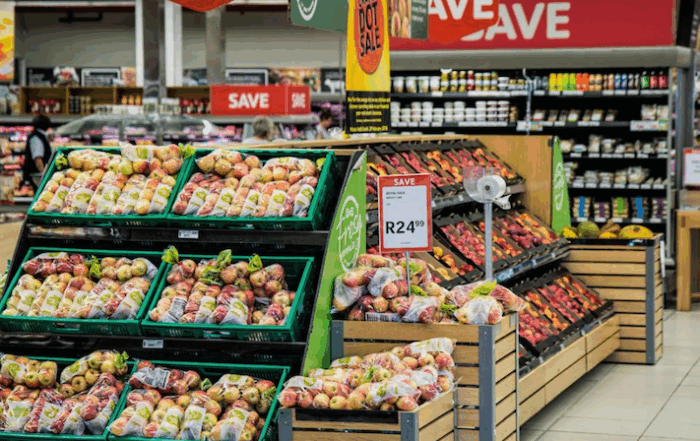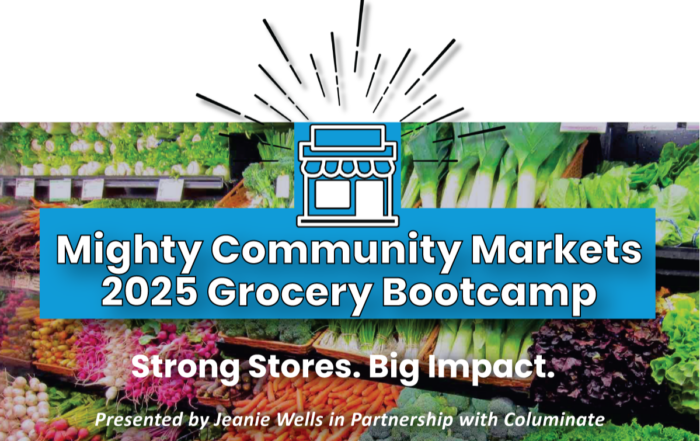Benefits of Columinate’s Interim General Management
Interim general management supports incoming management: Quite often, it is more advantageous for a co-op to use the services of an Interim General Manager (IGM) than to feel like they are forced into a [...]
Carolee Colter Wins TWIG Award
Top Women in Grocery (TWIG) is an award sponsored by Progressive Grocer as part of its annual Grocery Impact Conference, to be held this year on November 7. The 2025 TWIG Awards, announced in June, include Columinate’s Carolee Colter, after she was nominated by Joel Brock.
Chris Morris: Interim General Manager Leadership in Ann Arbor
Columinate’s Interim General Manager (IGM) services have yielded very positive results at People’s Food Co-op (PFC) in Ann Arbor, Michigan. While under contract as IGM, Chris Morris has exercised a wide range of skills to work with the existing team and turn around a wavering operation. Morris was hired in early January and ends his contract with PFC on May 30.
Columinate’s Presence at CCMA May 29-31
Columinate members will be among the many presenters and trainers at the 2025 CCMA conference, to be held in Duluth, Minnesota, on May 29-31. They will join a few hundred co-op directors, managers, and key staff from a network of food co-ops and national allies. The CCMA conference, sponsored by UWCC, is a spirited and busy three days of challenging speakers, workshops, local tours, networking, award presentations, and a bang-up closing party.
Three Retailer Challenges Addressed by Mighty Community Markets Grocery Bootcamp
Independent grocery stores—mom-and-pop shops, food co-ops, and nonprofit-run markets—face unique and persistent challenges. From thin profit margins to limited formal training, retail leaders often find themselves navigating complex work with little support. Mighty Community Markets Grocery Bootcamp, presented by nationally recognized consultant and former general manager Jeanie Wells, was created to directly address key challenges faced by community-minded grocers across North America.
Annual Report Shows Food Co-op Impact
In mid-April, National Co+op Grocers (NCG) released its “2024 Food Co-op Impact Report,” showing strong sales growth and continuing leadership by co-ops in local, organic, and Fair Trade product sales. Click here for a pdf of the full report. Same-store sales growth among NCG co-ops was a strong 4.7 percent, compared to overall US retail grocery sales growth of under 3 percent. (That was in a volatile and somewhat inflationary market. According to the federal Economic Research Service, 2024 food inflation was 2.3 percent.)
Mighty Community Markets Bootcamp 2025: Interview with Jeanie Wells
Mighty Community Markets Grocery Bootcamp returns this May for its sixth iteration, featuring new content and an updated curriculum that reflects industry trends. The program, which has served 200 leaders thus far, is dedicated to supporting small and independent grocery stores, providing essential training and development to help leaders better serve their communities.
Patrick Shabram Brings Market Research Expertise to Columinate
Columinate is proud to welcome Patrick Shabram as a new consultant. Patrick comes to Columinate after working with location research expert Debbie Suassuna of G2G Research Group since 1998 (specifically, with G2G Research since 2017), bringing more than 30 years of experience in location research, market research, and Geographic Information Systems (GIS) to the Columinate network.
Molly Phipps Offers Grant Writing Services
We all want to do more with our co-ops: make a bigger impact, pay better wages, support our local non-profits. Sometimes the money to make that impact can come from operational profits, but at other times co-ops can turn to grants. Columinate consultant Molly Phipps has been grant writing since graduate school and has helped co-ops and other organizations write successful grant applications.
2025: International Year of Cooperatives
In proclaiming 2025 the International Year of Cooperatives, the United Nations and cooperatives worldwide are lifting up the tremendous social and economic achievements and potential of these democratic, community-based associations. In the US, the campaign is being led by National Cooperative Business Association (NCBA) CLUSA, our apex trade association and an international development organization.









